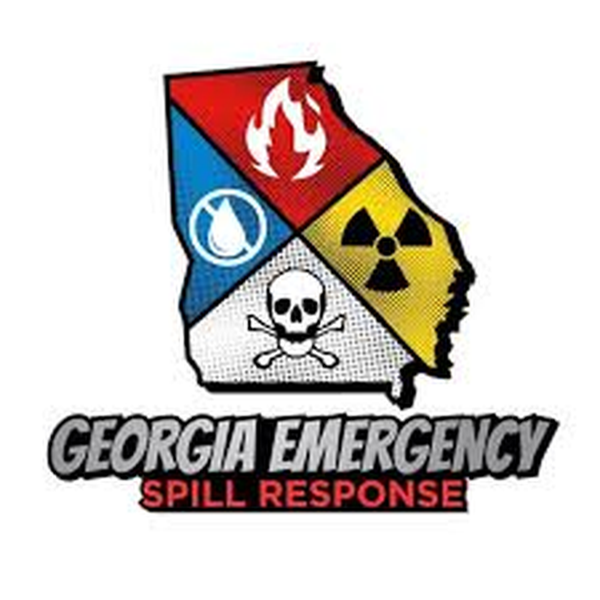Discover why having a spill response plan is critical for oil and gas operations in Georgia. Learn what to include, how to comply with EPD, and reduce costly downtime.
An oil and gas spill is a one-way ticket to environmental, legal, and financial chaos. Whether it’s a ruptured diesel tank on a flatbed or a hydraulic line failure on a healthy site, these incidents can escalate fast, especially in Georgia, where a mix of urban expansion and sensitive ecosystems raises the stakes.
If you operate heavy-duty diesel equipment, a spill response plan is absolutely essential. Here’s what you need to know.
The Real Cost of Oil and Gas Spills
Let’s not sugarcoat it—oil and gas spills are expensive. One bad leak and you’re looking at:
- Soil and water contamination cleanup
- Fines from the EPA
- Loss of customer trust
- Downtime for your fleet
- Insurance hikes
In Georgia, where natural resources are closely protected and regulatory oversight is tight, cleanup compliance is strict and time-sensitive. Without a Georgia emergency oil and gas spill response plan, your business could scramble while thousands of dollars leak away.
Key Elements of an Effective Spill Response Plan
Creating a plan is all about getting your boots on the ground faster and smarter when things go wrong.
1. Risk Assessment and Mapping
Start by identifying where spills could occur:
- Fuel storage tanks and transfer zones
- Maintenance bays and equipment wash stations
- On-road and off-road diesel trucks
- Hydraulic systems in heavy machinery
Plot these zones and consider proximity to waterways, drains, or public spaces.
2. Spill Kit Readiness
You wouldn’t drive without a fire extinguisher in your cab—so why operate without a spill kit?
A proper kit in Georgia should include:
- Absorbent pads and booms
- Secondary containment
- Personal protective equipment (PPE)
- Disposal bags
- Neutralizers (for acids or caustics, if applicable)
Place them in every service truck and high-risk facility zone. Make it part of your preventive maintenance checklist.
3. Training and Drills
Don’t assume your crew will “figure it out.” Regularly train them on:
- How to identify and report a spill
- Immediate containment actions
- Use of PPE and spill response equipment
- Regulatory reporting procedures
In Georgia, the EPD must be notified immediately if a spill affects state waters or if more than 25 gallons hit the ground. Any delays are classed as violations, and you will pay the price!
4. Response Chain of Command
Time is money, and confusion costs both. Designate a response leader and backup responders per shift. Use laminated flowcharts on-site to outline:
- Who calls whom
- Where the kit is
- When to escalate
This hierarchy eliminates delays and finger-pointing when you’re under pressure.
State Regulations You Need to Know in Georgia
Georgia has specific requirements under its Emergency Response Program. If you discharge petroleum:
- You must notify the Georgia Environmental Protection Division (EPD)
- Immediate containment is your legal responsibility
- Spills over 25 gallons must be reported
- Any discharge to surface water must be reported, regardless of size
Failing to report or act can lead to penalties of $50,000 per violation per day—not to mention the cleanup cost, which could reach six figures fast.
The Diesel Angle: Heavy-Duty Risks
Heavy-duty diesel trucks and equipment pose some of the highest risks for oil and fuel spills:
- Hydraulic leaks from ageing seals
- Diesel overflows during refuelling
- Oil discharges during mobile maintenance
- Transmission or coolant leaks under pressure
Even a “small” spill under a semi-truck on Georgia asphalt can spread into stormwater drains or roadside soil. Without a containment plan, it becomes a reportable incident.
Real-World Scenario: What Could Go Wrong
Picture this: One of your fleet drivers in Macon pulls over to inspect a loud noise, only to find hydraulic fluid leaking onto the roadside. They’re 20 minutes from the nearest service location, and they don’t have a spill kit.
By the time help arrives:
- The fluid has travelled to a nearby storm drain
- A bystander has posted photos online
- The Georgia EPD has received a tip-off
- You’re on the hook for cleanup, fines, and public scrutiny
Now flip it—imagine that same driver had a spill kit, proper training, and knew exactly who to call. The leak would be contained in minutes, documented, and reported correctly. That’s the power of planning.
Don’t Forget Mobile Tech: Modern Tools for Modern Fleets
Today’s best-in-class fleets use mobile apps to manage spill logs, dispatch emergency response teams, and report to authorities in real time. If you're in Georgia, make sure your software includes:
- Incident documentation features
- GPS-tagged spill reports
- Checklist integrations for DOT compliance
- Direct EPD reporting templates
Automation reduces errors, speeds up response, and helps you stay compliant even when you’re in the middle of nowhere.
Conclusion: Plan Now or Pay Later
In the oil and diesel world, accidents aren’t a matter of if—they’re a matter of when. But with the right response plan in place, your crew can handle spills quickly, minimize damage, and keep operations running.
Georgia’s emergency spill response requirements aren’t just red tape—they’re designed to protect the public, the environment, and yes, your reputation.
